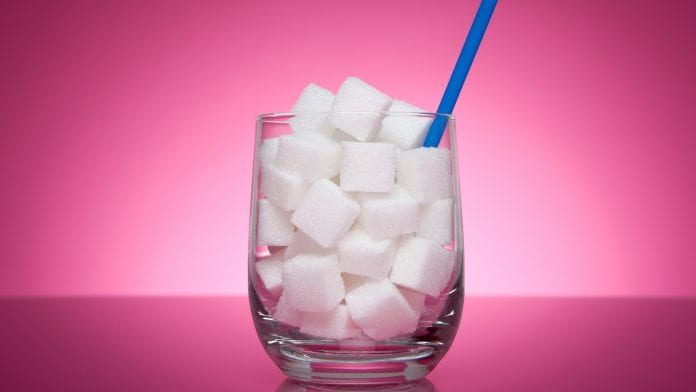
Young children in the UK surpass the maximum recommended daily sugar allowance, this being around 2,800 excess sugar cubes per year.
According to PHE (Public Health England) young children consume much more sugar than they should, around eight excess sugar cubes a day or 2,800 excess cubes per year. The consumption of sugar is exceeding the recommended daily sugar allowance for an 18-year-old by the time they are 10, and now PHE call for a pudding tax to be considered if companies fail to reduce the amount of sugar in their products.
We want to tackle obesity before it hits young children
PHE want families to adhere to the recommended daily sugar allowance in order to tackle obesity, tooth decay and other illnesses linked to excess sugar. A likely solution to combat this issue is to choose lower-sugar foods and drinks.
According to the BBC, the recommended daily maximum of sugar for children aged four to six is five cubes or 19g. For children aged seven to 10 this rises to six cubes (24g) and up to seven cubes (30g) for those aged 11 and over.
However, based on results from the National Diet and Nutrition Survey, young children across the UK are consuming around 13 cubes or 52g of sugar a day.
And half of the sugar in the diet of young children comes from sugary drinks, sweets, biscuits, cakes, puddings, sugary breakfast cereals and higher-sugar yoghurts and puddings.
Time to adhere to the recommended daily sugar allowance
Typical solutions could be for parents to swap a higher-sugar yoghurt for a lower sugar one, to halve sugar intake from six cubes of sugar to three cubes or switch sugary juice drink for a no-added sugar juice drink, to cut back from two cubes to half a cube.
Making such swaps every day could remove around 2,500 sugar cubes per year from a child’s diet, but swapping chocolate, puddings, sweets, cakes and pastries for healthier options such as malt loaf, sugar-free jellies, lower-sugar custards and rice puddings would reduce their intake even more.
Dr Alison Tedstone, chief nutritionist at PHE, said: “Children are consuming too much sugar, but parents can take action now to prevent this building up over the years.”
PHE is working with the food industry to cut 20% of sugar from the foods children consume most by 2020.
Sticking to the recommended daily sugar allowance but not shaming children for their weight
As highlighted by PHE, it is vital for parents to monitor the sugar consumption in young children, however it is equally important for parents and society as a whole to not shame children for their weight or cut sugary foods out completely.
The swapping of sugary goods for healthy/lower sugary options is important but motivating young children to intrinsically focus on their mind and health will allow them to foster a more positive attitude when it comes to healthy eating and will essentially help to contribute to a better mental health state.









